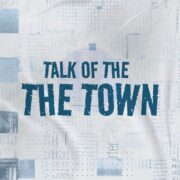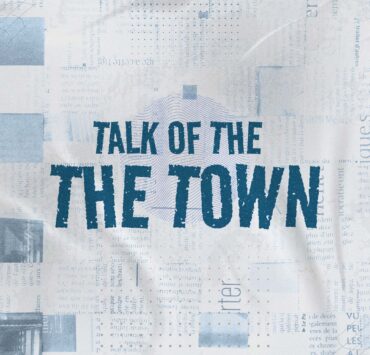Mini rice cooker, max adulthood

Until nine months ago, I had no reason to own a rice cooker. I had always stayed with family. When I moved to the United States to get a master’s degree, I cooked rice on the stove. In the last three years, I moved constantly, changing addresses four times, which meant that everything I owned had to fit in two suitcases. The uncertainty of owning appliances felt like a commitment I was not ready to make.
Then I accepted a job in Cambodia. The lower cost of living meant I could finally afford my place. With a full-time contract, I would live in Phnom Penh for at least a couple of years. In other words, I was ready to own a rice cooker.
A central idea of my concept of adulthood is owning appliances. Owning a rice cooker, though, felt like something more. It was a way of saying: I am building a home.
On the third floor of Aeon Mall, rows of rice cookers lined three shelves. Store clerks stood at attention, like predators eyeing their prey, as a Billie Eilish song played in the background.
I thought choosing a rice cooker would be easy.
Aeon Mall lines up its models according to specs; each model more advanced than the last. First came the classics—simple cylinders with glass lids and a single switch that went from “cook” to “warm.” I learned these were called “drums” because of their shape. The models on the second shelf did more than just cook rice; they steamed vegetables, cooked porridge, and made soup. The third shelf carried the fanciest models. With digital screens, smart temperature controls, and a gazillion buttons, they looked more like spaceships than anything that belonged in the kitchen.
Seeing me stumped, the lady in charge asked me what sounded like a trick question: What do you want to be able to do with the rice cooker? I gave a half-answer, half-question: Make rice? She escorted me back to the first shelf.
Living in Cambodia brought a lot of firsts. First time living without family or roommates. First time taking on a managerial role. First time being completely independent of my parents’ money. At 27, my life was finally starting. I wanted to begin with the right rice cooker.
I settled on a classic white drum from the brand Darata, which looks normal in all respects except for one defining trait: it is tiny. Imagine pasting a photo of a typical rice cooker into a PowerPoint document and then reducing it to a third of its original size. At most, my rice cooker can cook a cup and a half of rice, which is perfect for my solo lifestyle.
The first time I used my rice cooker, I thought it was defective. I followed my usual formula: half a cup more water for every cup of rice. Water gurgled out of the pot; I had put too much. When I told my mom what happened, my aunt, who was also on the call, told me to check for the built-in markers inside the pot for the right water levels. The markers are there, as they were designed in the factory. I cursed, wondering: What else is plain to see but my mind has chosen to ignore?
After seven months on the job, I received another first: a termination notice. President Donald Trump pulled out US foreign aid and gutted USAID, the agency that delivered it. My company had banked on USAID contracts that we had already won. But with the funding cut, we could not make payroll. Within a month, we closed the Cambodia office, and my job ceased to exist. With the stroke of one man’s pen from the other side of the world, I was no longer an economist; I was just some guy in Phnom Penh.
Leaving the US to work for a young research company in Cambodia was a huge gamble in the first place. Back in Washington, one of the oldest think tanks in the world had offered me job security for less pay. Instead, I chose the path that seemed more strategic to my career. In doing so, I left behind the scaffolding of a life—friends, running paths, routines—I had started to build.
In the weeks since my last day in the office, the rumination only intensified. Was leaving the United States the right move? Is international development the right career? Ironically, my now-empty calendar meant that I had more decisions to make: Should I travel or hunt for jobs? Go out more or join a gym? Stay the course or reinvent my career? On some days, choosing seemed pointless. Every decision made feels subpar against an unspoken standard.
I used to think living alone was like sitting in the driver’s seat, maneuvering toward a known destination. Now I think it’s more like standing before a series of doorways, making small, unremarkable choices—each one shaping a life I can’t yet see, but will have to live, regardless.
When my parents visited me in Phnom Penh, my dad told me to get something that would remind me of my time in Cambodia. He meant for me to buy art. A month later, I tucked my rice cooker into my suitcase, where it nested neatly on one side, and boarded my one-way flight to Manila.
—————-
Miguel Carlos, 28, used to measure the impact of foreign aid programs. He’s back at his parents’ house.

















What the Parents Welfare Act is and isn’t